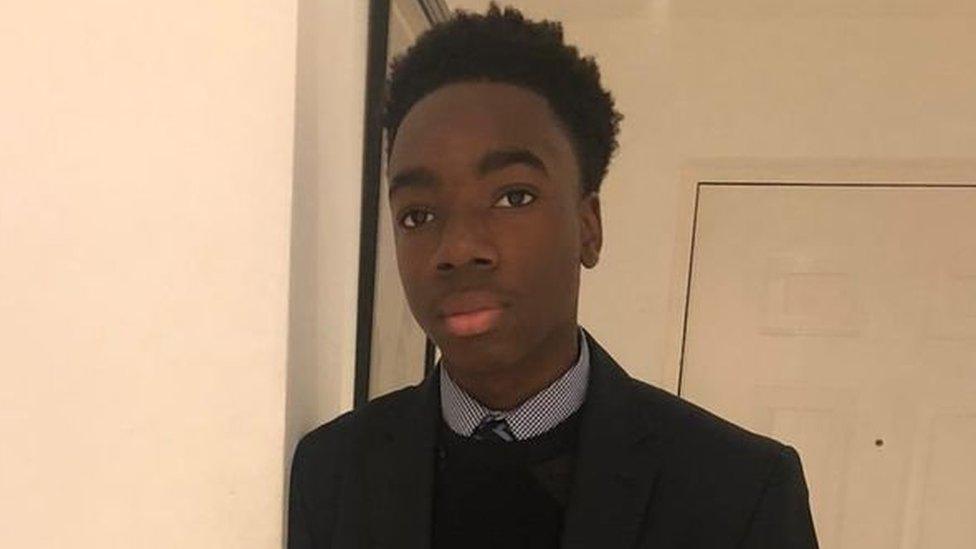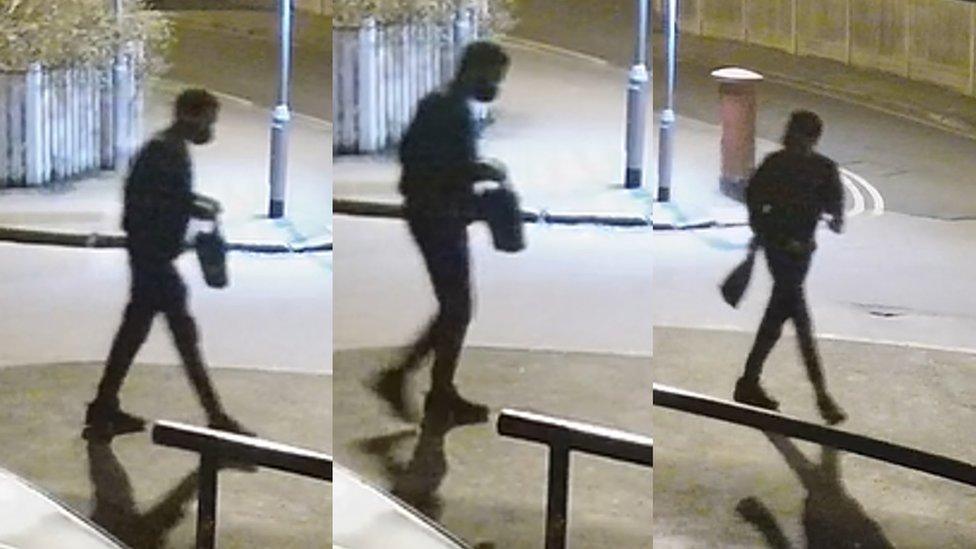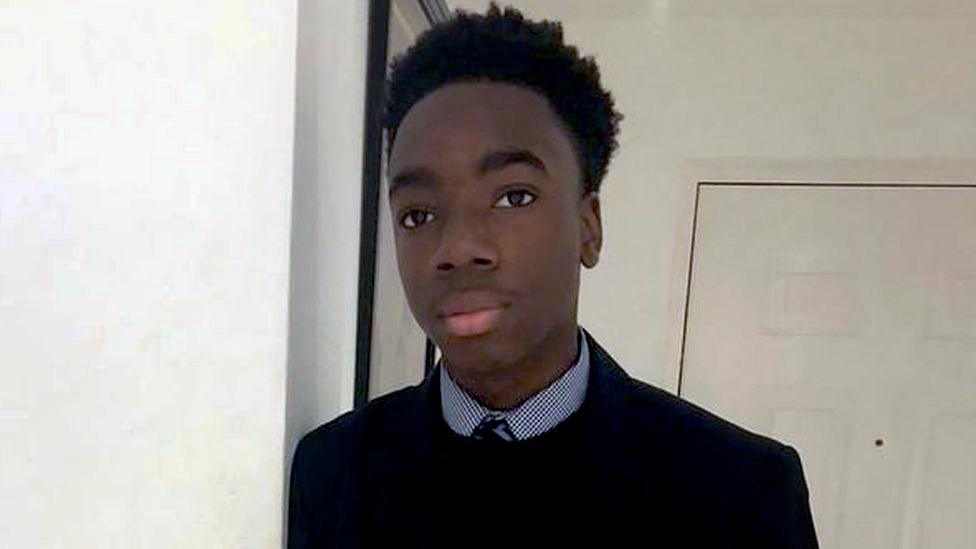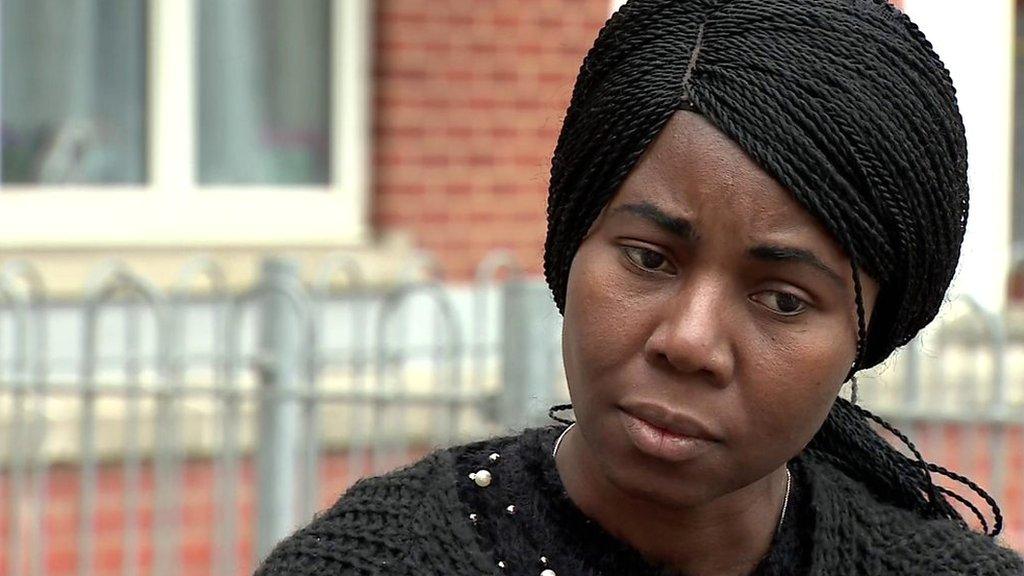Richard Okorogheye death consistent with drowning - inquest
- Published

Richard Okorogheye had sickle cell disease and left home without his medication
The death of a student whose body was found in pond was "consistent with drowning", an inquest has heard.
Richard Okorogheye, 19, was found in Epping Forest, Essex, on 5 April 2021, two weeks after he went missing from his home in west London.
He had sickle cell anaemia but left home on 22 March without medication.
His mother contacted police the following day, but her son was not officially recorded as a missing person until 08:00 on 24 March.
Mr Okorogheye's cause of death was given as "consistent with drowning" by consultant forensic pathologist Dr Benjamin Swift during the first day of an inquest held at Essex Coroner's Court in Chelmsford.
Dr Swift had been informed by Mr Okorogheye's family that he had been unable to swim and disliked water, the court heard.
The forensic pathologist said there were no acute injuries identified externally or internally, and no marks of an offensive or defensive nature.
Area coroner Sean Horstead decided the inquest would not look into the wider circumstances surrounding Mr Okorogheye's death, as his provisional view was that the 19-year-old had died by the time his mother first reported him missing to the police.
Evidence Joel, Richard Okorogheye's mother: "He loved life, he had plans, he had aspirations"
A pen portrait of Mr Okorogheye, written by his mother, Evidence Joel, was read out by his aunt, Toyin Ideozu, at the inquest.
She described Mr Okorogheye as "a respectful, hardworking and ambitious boy".
"He would say to me 'Mum, you're always looking out for me, but are you OK?'. Only a few weeks before he disappeared, Richard came up to me in the kitchen and said, 'Mum, I really appreciate you, you do so much for me'.
"The last time I saw Richard, I was leaving our home to do a night shift. As I was leaving, I said to Richard 'I love you', Richard said to me 'Mummy, I love you too, take care and we will talk later'."
Ms Joel said her son did not resent having to shield during the pandemic and, asked by the coroner if he had any poor history of mental health, she replied "no, never".

CCTV images showed Mr Okorogheye on 23 March walking alone towards Epping Forest
Mr Jefir Sharif, a forensic toxicologist, gave evidence at the inquest and said levels of alcohol and gamma-hydroxybutyrate (GHB) were found in Mr Okorogheye's blood and urine during tests after his death.
He added the levels of GHB suggested they were produced by the body after death rather than ingested or administered.
Mr Okorogheye, who was a student at Oxford Brookes University, had been isolating during the Covid pandemic and left home only to go to hospital to receive blood transfusions for his sickle cell disorder, the inquest heard.
Following Mr Okorogheye's death, the police watchdog began an investigation and said the force should apologise to his family after officers provided an "unacceptable level of service" to his mother.
The Independent Office for Police Conduct (IOPC) found the performance of three police officers and three call handlers fell below the standard expected, but their actions did not meet the threshold for disciplinary action.
The inquest continues.

Follow BBC London on Facebook, external, Twitter , externaland Instagram, external. Send your story ideas to hellobbclondon@bbc.co.uk, external
Related topics
- Published6 July 2022

- Published7 September 2021

- Published29 April 2021

- Published8 April 2021
